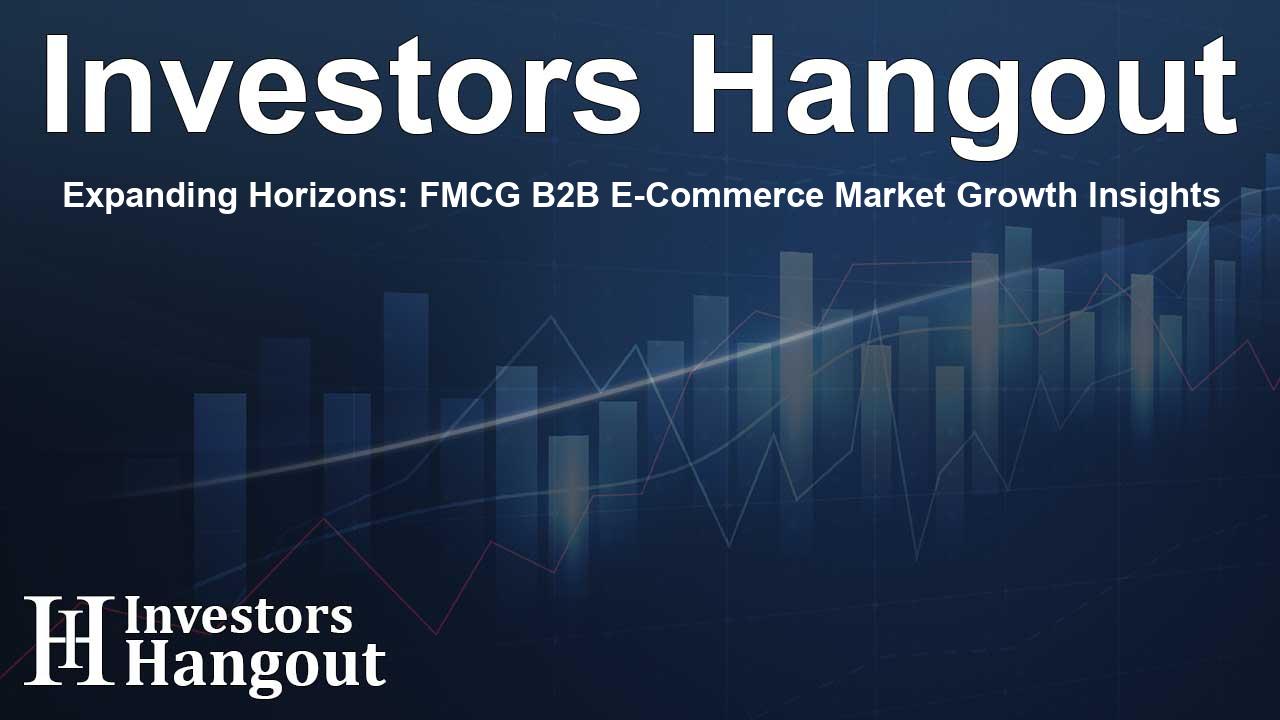Expanding Horizons: FMCG B2B E-Commerce Market Growth Insights

Understanding the Growth of FMCG B2B E-Commerce
The FMCG B2B e-commerce market is experiencing significant transformation as companies migrate to online platforms for bulk purchases. With a market size that was valued at USD 520.8 billion in 2021, it's estimated to reach USD 1220.5 billion by 2031, indicating a robust growth anticipated at a CAGR of 9% from 2022 to 2031. This upward trend reflects wider business adaptation to digital solutions.
Key Factors Driving Market Expansion
Digital Transformation and Bulk Purchasing
Businesses in various sectors, particularly food and beverages, personal care, and cosmetics, are leveraging the efficiency of e-commerce for enhanced supply chain management. E-commerce allows for real-time tracking and competitive pricing, which drives costs down. Traditional retailers are increasingly recognizing the necessity of digital solutions to stay competitive. This shift is especially pronounced in regions where consumer demand is rising, coupled with digital transformation.
Advantages of E-Procurement Solutions
The adoption of e-procurement solutions is enhancing operational efficiency within the FMCG B2B e-commerce landscape. By digitizing procurement processes, businesses can streamline their operations, ensuring timely deliveries and reduced lead times. The implementation of these solutions allows for effective supplier management and automatic order tracking, making it a central component of the FMCG sector's strategy.
Current Trends Influencing Growth
Food and Beverage Industry as a Driving Force
The food and beverage sector emerges as a key player in B2B e-commerce growth, driven by the demand for timely and bulk supplies from restaurants and catering services. Access to extensive inventories facilitates smoother operations and allows businesses to manage costs more effectively. Furthermore, the convenience of online wholesale marketplaces encourages competition and better pricing strategies.
Enhancing Retail Efficiency through Digital Solutions
Offline retailers are utilizing B2B e-commerce platforms to refine their procurement processes and improve inventory management. This digital transformation enables them to streamline their purchasing activities and secure better deals through access to a wider range of suppliers. This transition is paramount, particularly for small to mid-sized retailers looking to remain relevant within today’s competitive marketplace.
Market Share and Competitive Landscape
The Asia-Pacific region prominently leads the FMCG B2B e-commerce market, facilitated by the integration of digital tools and the ongoing consumption of essential goods. Major players like Alibaba and IndiaMart are at the forefront of this growth, continuously innovating to cater to evolving consumer needs. Their competitive strategies are vital for maintaining market momentum in this expanding sector.
Key Companies in FMCG B2B E-Commerce
Several established players are shaping the trajectory of FMCG B2B e-commerce, including notable companies like the following:
- Alibaba Group Holding
- Amazon
- EBAY
- Global Sources
- IndiaMART InterMESH Ltd.
- The Kroger Co.
- Walmart
- Rakuten Group Inc.
- Staples
- Americanas sa
Frequently Asked Questions
What is the projected size of the FMCG B2B e-commerce market by 2031?
The market is projected to reach USD 1220.5 billion by 2031.
What factors are driving the growth of this market?
Key factors include increased digital adoption, the need for efficient supply chains, and the rise in bulk purchasing among sectors like food and beverages.
Why is the Asia-Pacific region significant in this market?
This region leads due to its integration of digital tools in everyday commerce and a high demand for essential goods.
What advantages do e-procurement solutions offer?
E-procurement solutions enhance supplier management, automate tracking processes, and improve efficiency across procurement workflows.
Which industries are primarily benefiting from FMCG B2B e-commerce?
The food and beverage, personal care, and cosmetics industries are among those benefitting significantly from advances in B2B e-commerce.
About The Author
Contact Thomas Cooper privately here. Or send an email with ATTN: Thomas Cooper as the subject to contact@investorshangout.com.
About Investors Hangout
Investors Hangout is a leading online stock forum for financial discussion and learning, offering a wide range of free tools and resources. It draws in traders of all levels, who exchange market knowledge, investigate trading tactics, and keep an eye on industry developments in real time. Featuring financial articles, stock message boards, quotes, charts, company profiles, and live news updates. Through cooperative learning and a wealth of informational resources, it helps users from novices creating their first portfolios to experts honing their techniques. Join Investors Hangout today: https://investorshangout.com/
The content of this article is based on factual, publicly available information and does not represent legal, financial, or investment advice. Investors Hangout does not offer financial advice, and the author is not a licensed financial advisor. Consult a qualified advisor before making any financial or investment decisions based on this article. This article should not be considered advice to purchase, sell, or hold any securities or other investments. If any of the material provided here is inaccurate, please contact us for corrections.
